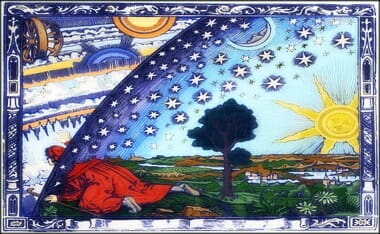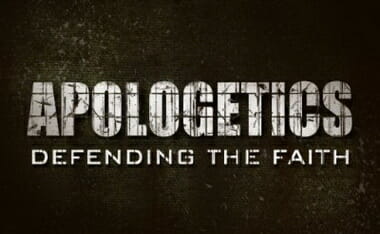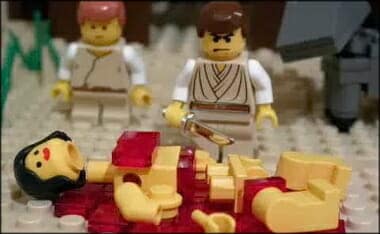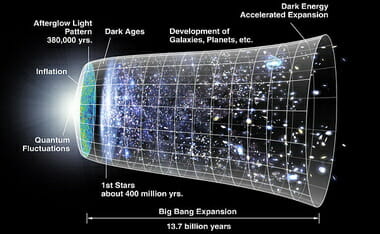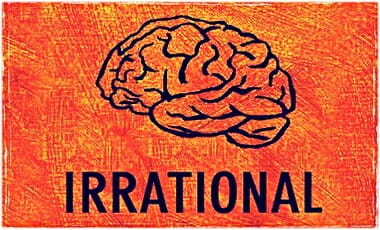~ Bahnsen is at the end [bottom] ~
This video is with thanks to Wintery Knight! (See: Apologetics 315):
Topics:
- Atheists misunderstand the nature of faith.
- Atheistic view of epistemology is self-refuting.
- Atheistic view of morality is self-contradictory.
- Atheistic view of free will is self-contradictory.
- Atheists don’t understand theistic arguments.
This is a short presentation of the material presented in this paper. If you want to hear more from Peter, this debate with an academic postmodern relativist is just awesome.
Just a quick aside… while I enjoyed the article, I disagree with some of the positions taken by Mr. Warren. In other words, he reads a bit too much between the lines. That being said, I thoroughly enjoyed the following (you may also note these many excerpts refuting this idea of philosophical naturalism and empiricism here):
The bankrupt epistemology of secular empiricism
The failure of the demarcation criterion between science and religion is part of the general failure of secular epistemology. We have seen that the ID leaders appeal to both (at least when it is convenient), so unless they are going to offer something better than what the best secular philosophers have attempted, which they have not, their view of scientific epistemology must be considered a failure as well. The ID leaders are standing on sinking sand to rely on bankrupt, secular epistemology to defend ID. By keeping the sovereign God of Scripture out of science, ID leaders put themselves in the position of denying a source of rational unity that extends to all the particular facts of experience, which puts them in the indefensible epistemological position of explaining how particular facts without unity between them can be intelligible. A brief review of why secular empiricism fails to provide a basis for science will highlight the problem that the ID leaders face in their opposition to bringing God and the Bible into science. The current status of secular epistemology, particularly secular empiricism, is captured by twentieth-century philosopher Bertrand Russell’s denial that we can know anything whatsoever:
“That scientific inference requires, for its validity, principles which experience cannot even render probable is, I believe, an inescapable conclusion from the logic of probability…. To ask, therefore, whether we ‘know’ the postulates of scientific inference is not so definite as it seems…. In the sense in which ‘no’ is the right answer we know nothing whatsoever, and `knowledge’ in this sense is a delusive vision. The perplexities of philosophers are due, in a large measure, to their unwillingness to awaken from this blissful dream.”
Russell came to recognize that naturalistic empiricism provides no basis for saying that there is a world at all:
“Academic philosophers, ever since the time of Parmenides, have believed that the world is a unity. The most fundamental of my intellectual beliefs is that this is rubbish. I think the universe is all spots and jumps, without any unity, without continuity, without coherence or orderliness or any of the other properties that governesses love. Indeed, there is little but prejudice and habit to be said for the view that there is a world at all.”
We can go back to David Hume to understand the reductio ad absurdum of attempts to justify causation and scientific knowledge on the basis of naturalistic empiricism. Hume saw that with sense impressions as the basis of all knowledge, there is no unity to the world. Nothing can be said to exist but the discrete moment. That a sequence of perceptions reflects a cause-and-effect relationship between external objects cannot be known from experience. Any necessity that might connect external objects that are perceived is not itself a perception, so the assumption of cause-and-effect necessity in the interaction of external objects is unwarranted. Abstract concepts like laws and logic are applied by the human mind to perceptions but they themselves are not perceptions. They all involve continuity over time but bare experience gives us nothing but the discrete moment. Since we have no experience of the future, experience itself provides no basis for believing that the future will be anything like the past. When “we form any conclusion beyond those past instances, of which we have had experience”, Hume says, using his theory of strict empiricism, our reasoning has “no just foundation”.
Even the concept of the self is undermined by strict empiricism since there is no one perception that lasts as long as the self allegedly does. When he sleeps, Hume says that he “may truly be said not to exist”. With no permanence to the self, knowledge and memory of the past, including one’s own past existence, is inconsistent with the claim that all knowledge is through sense experience. Hume was logically rigorous in reasoning from his assumptions, but this led him to an absurd conclusion. On the basis of Hume’s empiricism, we can have knowledge of neither the external world nor our inner selves, neither the past nor the future. Hume’s view of knowledge does not allow for laws of logic, laws of nature, or repeatability of experiments.
Hume resorted to custom and habit as explanations for our belief in the regularity of nature, but custom and habit themselves presuppose continuity over time, and discrete experience can provide no basis for continuity over time.” Hume lamented that the “cold, and strain’d, and ridiculous” conclusions of his philosophical reasoning gave him “philosophical melancholy and delirium”. A history of secular epistemology since Hume would be instructive, although space does not allow it. Nevertheless, Bertrand Russell’s statements from the mid-twentieth century quoted above, that there is no basis for saying that the world has unity or even that the world exists at all, indicate that the problems with secular empiricism that Hume uncovered have not been overcome since then.
[….]
The solution to the modern crises of justifying knowledge and rationality is the Transcendental Argument for the existence of God (or TAG) formulated by Cornelius Van Til.
TAG is an explicitly theistic theory of knowledge, or you might call it theory of fact; therefore it applies to all facts in the world, whether stones or watches. The argument is that the existence of God, an absolute God who is the source of all that exists, necessarily exists in order for knowledge to be possible. Van Til defines an absolute God, which he also calls a “concrete universal” God, as one who is the source of both the diversity of all the particular facts of the world and the unity of the concepts that apply to them. Unity and diversity must be eternally related to each other in the mind of God, because:
- “An abstract diversity is chaos, which is irrational.
- An abstract unity is a pure emptiness, which cannot be an object of thought either.
- The two irrational principles cannot be combined to produce a rational world, where human knowledge, intelligible experience, etc. are possible.”
Compare Van Til’s approach to Dembski’s description of Complex Specified Information (CSI):
“(1) Chance generates contingency, but not complex specified information. (2) Laws… generate neither contingency nor information, much less complex specified information. (3)… no chance-law combination is going to generate information either. After all, laws can transmit only the CSI they are given, and whatever chance gives to a law is not CSI. Ergo, chance and laws working in tandem cannot generate information.”
They both recognize that information cannot be the product of combining chance and law. Just as Van Til affirms that knowledge must be eternal because knowledge can only come from knowledge, Dembski affirms: “Information is sui generis. Only information begets information.” Therefore information must be eternal according to Dembski’s reasoning. Information requires both order and diversity, or “specified complexity” as Dembski calls it, and he recognizes that merely adding chance and law cannot produce specified complexity.
Van Til’s phrase that closely parallels Dembski’s specified complexity is “concrete universal” (see table 1 [below/right]). Van Til argues that a concrete universal God is necessary for the possibility of intelligible experience. This means that the unity of experience (i.e. the `universal’) and the diversity of experience (i.e. the ‘concrete’) must be eternally related to each other. He notes: “Every intellectual effort deals with facts in relations and with relations in facts.” As postmodernists have put it, all facts are interpreted facts.” Facts unrelated to concepts and concepts without content (unrelated to particular facts) are both meaningless, and the two meaningless notions cannot combine to create knowledge. Every particular fact and every universal that applies to every fact are eternally related to each other in the mind of God. Knowledge can only come from knowledge. Human knowledge must be “receptively reconstructive” of God’s original knowledge; humans are not originally constructive of knowledge as the atheists contend. Humans are made in the image of God, thus our knowledge is a reflection of God’s knowledge, meaning that human knowledge can be true but not exhaustive like God’s.”
The difference between Dembski and Van LI here is that Dembski is addressing the narrower topic of information, which applies to a watch but not a stone. Van Til is addressing the broader topic of intelligibility, which applies to any fact, whether a watch or a stone. However, Dembski touches on the issue of intelligibility in his aforementioned chapter where he drops his idolatrous praises of finite gods and sees something of the necessity of the biblical view of God for the possibility of science. He makes this observation that is in harmony with Van Til’s philosophy:
“God, in speaking the divine Logos, not only creates the world but also renders it intelligible…. Einstein claimed: ‘The most incomprehensible thing about the world is that it is comprehensible.’ This statement, so widely regarded as a profound insight, is actually a sad commentary on naturalism. Within naturalism the intelligibility of the world must always remain a mystery. Within theism, on the other hand, anything other than an intelligible world would constitute a mystery?”
[….]
Michael H. Warren, “Intelligent Design Leaders Promote a Naturalistic Epistemology,” Journal of Creation, vol. 29[3] (2015), 115-118
The following is with thanks to Mike Robinson via: God Does Exist:
Empiricism Flops
Empiricism fails as a worldview every time you stub your toe or trip over a rock since this helps demonstrate the sometimes unreliability of our sight; our senses are normally reliable, but we cannot build a worldview on their untrustworthiness. God alone is the necessary truth condition for an intelligible worldview which includes the basic trustworthiness of our five senses.
Atheists can be rational because they borrow rational essentials from the Christian Worldview (CWV); the atheistic WV fails to account for the laws of logic that the CWV underwrites all the while borrowing them out of necessity.
Analysis of anti-theistic materialism demonstrates that it is self-nullifying inasmuch as it fails to give what it does not possess. The material cosmos, as a particular thing, is devoid of a foundation for eternal invariant universals; one cannot hang one’s house on one’s paintings, but one hangs one’s paintings on one’s house. God is the immovable truth required to hang knowledge claims, including atheistic claims.
The Rational Pre-essentials for Knowledge
I will employ a transcendental analysis by determining what the rational pre-essentials are for knowledge and understanding human experience; what must be true to be able to account for intelligibility. The triune God is the transcendental necessity who provides the preconditions for knowledge of reality. Mere men, devoid of immutability and universal rational attainment, cannot supply the transcendental conditions that are needed for the Law of Non-contradiction (LNC), love, and knowledge.
To rightly understand reality one must have universals to generalize the particulars. This implies that the sheer anthropology of atheism cannot supply the general and universal realities that must be present for the necessary and unavoidable transcendental conditions listed beforehand.
Some people claim that knowledge is impossible. Nonetheless if knowledge is impossible, one could not know that knowledge is impossible because that is a knowledge claim. The intelligibility of human experience requires God. Christianity is a WV that provides human reason an unchanging foundation for knowledge. Atheism, naturalism, and skepticism all fail to furnish a foundation for the LNC; thus they cannot provide the permanent footing for knowledge. They can only offer an irrational and incongruous WV.
Unless one believes in God, one cannot account for anything in the universe. God is the underlying and infinite ground for all knowledge, proof, evidence, and logic. It is impossible for God not to exist. He is the truth condition for all knowledge because all human knowledge requires the use of unchanging universals. The omniscient, immaterial, and unchanging God alone provides the a priori essentials for the use of nonphysical, universal, and unchanging universals. Non-believing thought cannot supply the necessary pre-environment for knowledge, thus they fall into futility.
“Of all the offspring of time, Error is the most ancient, and is so old and familiar an acquaintance, that Truth, when discovered, comes upon most of us like an intruder, and meets the intruder’s welcome” (Charles Mackay).
The Christian worldview is true because of the impossibility of the contrary. The contrary of the CWV implies a contradiction inasmuch as the denial of the CWV leaves one without the ontic (ontic: relating to ontology; relating to existence, being) foundation to ground immutable universals such as the laws of thought and moral laws, which are required for knowledge. The denial of knowledge (or its ground) is a self-contradicting endeavor.
